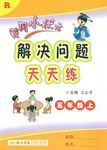题目内容
根据短文内容,从短文后的选项中选出能填入空白处的最佳选项,并在答题卡上将该项涂黑。选项中有两项为多余选项。(请将答案涂在答题卡上E=AB F=AC G=AD)
From now on, never spend your precious time thinking of reasons for your failures and shortcomings. Instead, realize that the seeds of success were planted within you when you were born. 1.
The seeds, and the power to grow them, are contained in the most awesome machine ever created: the human mind. Success is a choice and not a chance. You were born a winner. You were born rich. You can be a success if only you make the right choice.
2. Your level of self-esteem(自尊) is always based on the degree of control that you are able to exercise over yourself, and thus over your life. People with low self-esteem are people who do not believe that they have any power, or responsibility for their lives. They are the perennial(长期的) victims. They are leaves tossed(摇摆) by the winds of chance blown about with any sudden change in the weather.
You can exercise control over your life only to the degree that you believe that you are responsible for everything that happens in your life. Failures think that everything happens by accident and chance. 3.
Everything happens as a result of something. If we can identify the cause, we can control the effect. 4. One generally rises to the level that one expects. We are responsible for setting our expectations. Our success is dependent on our level of confidence.
If you associate with positive-thinking people, you are definitely going to achieve success. On the contrary, the opposite happens. We are responsible for finding, planting, and nurturing the seeds that contain future victory, born from setbacks(挫折).
In short, in all areas of your life, you are responsible. 5. .
A. Failure is the mother of success.
B. Once you recognize this, accept it, and firmly believe it, you are on the road to success
C. Successful people realize that they are responsible.
D. Developing confidence is the key to future success.
E. Only you have the power to make those seeds grow.
F. We are responsible for what we choose to think and believe.
G. You cannot be successful without first developing your self-esteem.
 黄冈小状元解决问题天天练系列答案
黄冈小状元解决问题天天练系列答案 三点一测快乐周计划系列答案
三点一测快乐周计划系列答案

 you love with all your heart isn't really the pain you can ever overcome.Radha lost her baby, her only means to live. She saw her child getting killed and the accidentwas terrible. One lonely night, she was walking down the street to get a breath of fresh air withher child hugged tight in her arms.
you love with all your heart isn't really the pain you can ever overcome.Radha lost her baby, her only means to live. She saw her child getting killed and the accidentwas terrible. One lonely night, she was walking down the street to get a breath of fresh air withher child hugged tight in her arms.